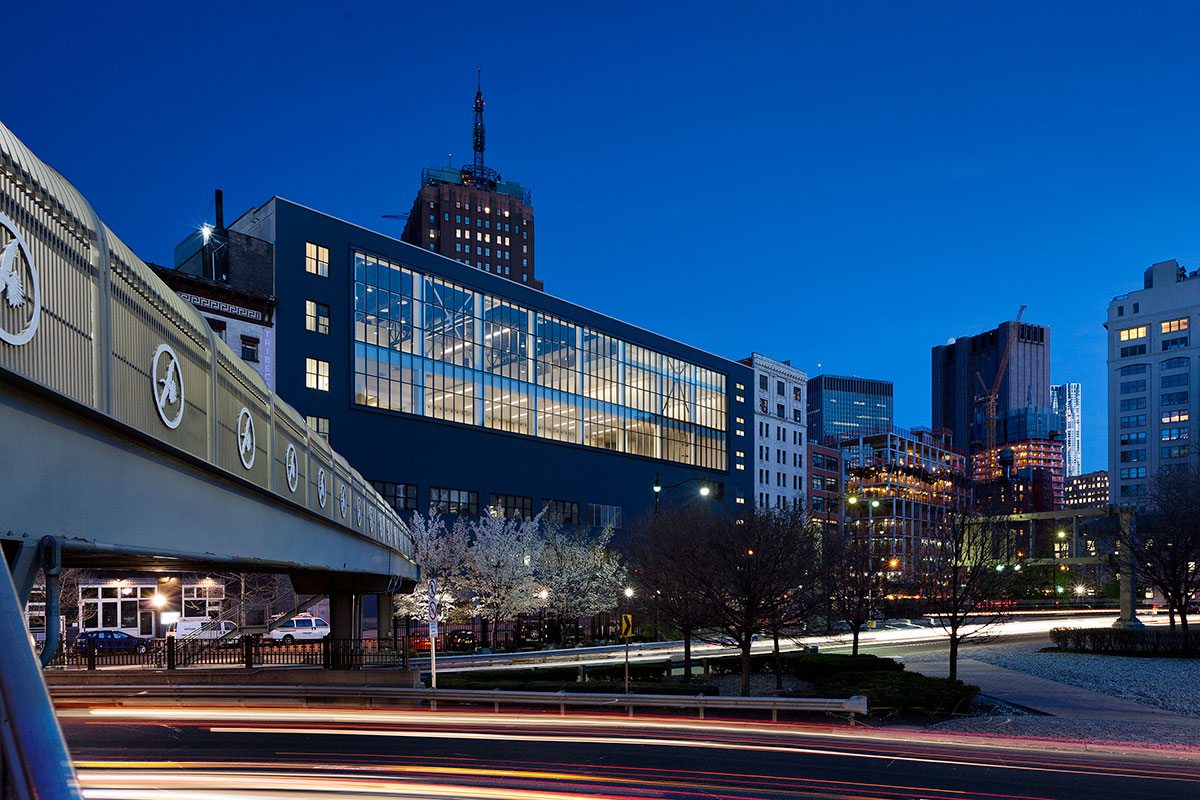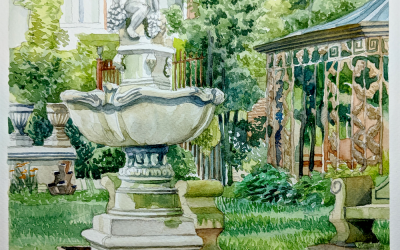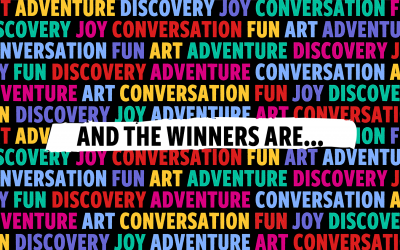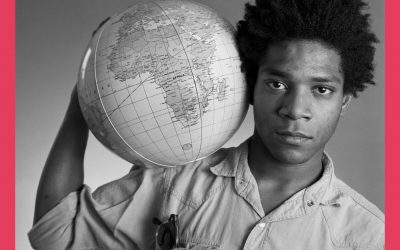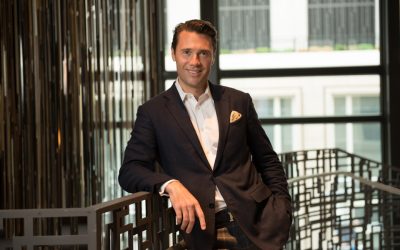The 2016 Tribeca Film Festival will open with the world premiere screening of “The First Monday in May,” Andrew Rossi’s documentary about the Metropolitan Museum of Art’s attention-grabbing Costume Institute exhibition, “China: Through the Looking Glass.” The film will then open theatrically on April 15th. I sat down with the film producer and downtown resident Fabiola Beracasa-Beckman to discover more.
Mark: What inspired you to produce ‘The First Monday in May?”
Fabiola Beracasa-Beckman: This was my second film. I made one previous feature film and I made a few shorts before that. I got the producing bug. The answer is multi-faceted. There are many things. First, I have a true affinity and history with The Costume Institute – I’ve been a member of The Costume Institute at The Met for over fifteen years. My mother was a friend of the Costume Institute. That affinity for the Costume Institute and for the Met Museum really excited me about the film. For as long as I can remember, my Mom took me to every exhibition and I was attracted to this project because of the strong cultural impact it would have.
M: Were you familiar with Andrew Rossi’s work prior to this project?
F: Yes, so I had seen his films – I saw Page One (Inside the New York Times) –and was familiar with Andrew’s work and felt he was a very good documentarian.
I know that you’re the producer of “Desert Dancer,” a film about an Iranian dancer who strived to reach his dream despite dance being forbidden in Iran. And, you’re in production with “The Grant,” a TV show where social entrepreneurs compete for funding. What attracted you to doing a documentary about this gala and all the extravagance and high-mindedness that goes along with this major New York event?
F: That’s a fairly easy question for me to answer, I have a small production company – it’s called Planted Projects – the focus of my production company is on stories that have social and cultural implications — an impact. I would like to correct the idea that the idea is about the Met Gala, because it’s not. What I like to call this film is a Trojan Horse, because it has all the bells and whistles. It has celebrity and those things don’t diminish the purpose of the film – they enhance it. The reason, I like to call it a Trojan horse is because there is a very strong cultural impact that the film can have. It’s going to reach people who don’t know what goes into the inner workings of a museum. It has a lot of flash and the film can influence the understanding of what is considered fine art and not. It will give insight into the meaning of ‘curator.’ It has a lot of the beautiful things that people like to see on the surface. The take-away is that the film is culturally enriching.
What would you like the audience to feel after they see the film at the Tribeca Film Festival?
F: I want the audience to feel that they’ve been given a peek behind the curtain, not just the curtain of celebrity and privilege – but also behind a different curtain, a cultural curtain, an intellectual curtain, a historical curtain. And, they go home knowing more than they did before they went to the movie. I want the audience having felt like they went to a great party and enjoyed it along the way.
Having attended The Met Gala regularly in the past – I am sure you had much to contribute creatively to Andrew [Rossi’s] directorial vision. How so?
F: My mother and I attended a lot of exhibitions when I was a child in the past. I think that the relationship between director and producer is always one where we share ideas and hopefully come to a place of understanding which is definitely what happened between Andrew and me. I think the beauty between Andrew and I was that Andrew has beautiful vision. He’s a fantastic filmmaker. And, also that he didn’t know anything about the inner-workings of the museum and the insider’s world of fashion. So, I was a very complimentary producer for Andrew. In many ways, it was terrific that he didn’t understand or know the inner-workings of the museum/fashion world because he came to the film with fresh eyes. In many ways my insider understanding was complimentary to his style because I helped him to navigate what interpretations to make and with the hierarchy of the Met. That worked really well for us because I was able to add a lot of color for Andrew in many ways. Aside from being a producer, I am a co-owner of an art gallery and have involvement with many different projects that support and promote the arts. In many ways, the relationship with the artist is similar to the relationship between the director and the producer where I could support the artist and re-orientate the artist when they needed it if they felt they are lost – leading to a symbiotic relationship between Andrew and me.
Have you worked with your fellow producers prior to this film? (Conde Nast Entertainment and MediaWeaver and Sarah Arison).
F: I met Matt [Weaver] through my association with Relativity Pictures because I had a first-look deal with them at the time because I sold them my Desert Dancer movie and Matt and I hit-it off. He had made Jiro Dreams of Sushi and several other accomplishments. Originally he helped me and he supported Planted Projects with his production. Matt helped me put everything together.On the other hand, Sarah Arison is a co-producer of “The First Monday in May”, is a fantastic friend – and who I worked with on Desert Dancer – She’s an all-around great person. I had never produced anything with Conde Nast and in particular I had a relationship with Vogue, and in particular Sylvana Soto-Ward, special events planner for Vogue who I worked very closely with throughout The First Monday in May – was always a great friend and also was very supportive. She is in the film as well and spearheads the Met Gala. There was a lot of pleasure working with the people dedicated to making the film happen. There’s a lot of protocol and bureaucracy when working with two institutions such as the Met and Conde Nast. Let’s not confuse that for an easy movie to make. It’s a Venn diagram, you know.
You were married a short while ago, I am wondering how is the process of producing a film similar to being a newlywed – can an analogy be drawn between the two?
F: I am newly married. This year, I gave birth to my son Felix and this movie. It was the year of babies – nine months – I would say ten months (laughs) devoted to making my son and a little more than that time making “The First Monday in May.” Also, I have another son with my husband and we’ve been together eleven years. Desert Dancer took us five years to make. If you want an analogy to marriage and filmmaking, if you don’t love it and you’re not passionate about it – then it’s just not worth doing. If you have committed to marriage, like a film – you have to roll your sleeves up when the going gets tough because it’s never going to be smooth sailing – it’s just part of the commitment.
To what extent have you participated at The Tribeca Film Festival as a Producer or an audience member?
F: I’ve only really attended one Tribeca Film Festival and some screenings. I’ve been fortunate enough to attend a few events surrounding the festival and some screenings. I think it’s a terrific film festival and I’m honored that we have been invited to be the opening film.
Do you have any favorite Hollywood film producers who you aspire to be like?
F: I hate – I dislike using the word hate – I dislike drawing too many comparisons. It should be very individual, everyone has their own way of doing things. I’ve modeled my tiny little film company roughly and loosely after the company Participant Media. I was very inspired by their founder Jeff Skoll whose company is dedicated to entertainment that inspires social change and cultural impact. Movies that have a purpose. It’s entertainment that inspires and compels social change. All the things that I like to do – my company is dedicated to — promoting social change and culture. I strongly believe that culture is an essential component to a civilized society.
How long have you resided downtown in NYC?
F: I went to college in Boston and boarding school in Switzerland. Throughout that time, my home base was always New York. Gosh, I’ve lived downtown since I was twenty eight.
What do you enjoy the most about living downtown?
F: I grew up uptown. It’s a terrific place, it’s quiet — it’s where there’s a sense of calm and peace especially after work hours. Living downtown, I feel that I am on more of the pulse of NYC, the creative juices are flowing downtown, and I am very attracted to that and I am very attracted to being close to creative people and feeling inspired. I own a gallery on the Bowery.
What’s the state of the film industry in your native Venezuela?
F: Sadly and unfortunately, my beautiful country, my native Venezuela has many more problems to think about right now than the film industry. The government is in complete disarray. Any kind of cultural aspects of the country are being put aside. Right now, the basic needs of the people are not being met.
What advice would you give to aspiring film producers?
F: Oh man, this sounds kind of cliché — the one piece of advice that I would give is to go for projects that you love, believe in and feel very passionate about. Take the time to know about what that is before you make the commitment.
In your free time, do you like to see movies often?
F: I love Netflix, Apple TV and all that fun stuff. Also, I have a husband, two little kids and two dogs. Sometimes it’s not conducive to watching a lot of things. I watch what I really want to watch. Gone are the days of binge watching anything. Not to be forgotten. There’s always someone needing a Mommy. That’s better than binge watching. It’s all great, every kind of phase is pretty enjoyable.
Name three dinner guests from Hollywood – past and present who you would like to sit with over dinner.
F: I am going to answer that very easily because through this movie we just made, I was fortunate to have two of them in the movie.
1. Baz Luhrmann
2. Wan Kar-wai who as far as I am concerned speaks in poetry – another brilliant man. He’s a Chinese Director. One of his most famous films is In the Mood for Love. I had the real honor and privilege to spend some time with them through this film.
Just thinking back on this film – they’re such inspiring people. Through this movie [“The First Monday in May”] they both said things in the movie that were wildly transformative for me.
I guess that I have a third person who I would like to have dinner with. I definitely want it to be a woman. There are so many inspiring women in Hollywood. Maybe, I will just email it to you because this requires more thought. There are so many women, and I only get to choose one. More than a few people are coming to mind, I just really want to think about my answer. I feel a little unsure about them and I want to think about them. It’s important to mean what you say and say what you mean and sometimes that requires thinking.
In this city at this pace, it requires thinking.
-by Mark Martiak
Mark is a Contributor to Downtown Magazine NYC and has appeared on CNBC’s Closing Bell, FOX BUSINESS and Yahoo! Finance. Mark is an Investment Advisor Representative at Premier Wealth Advisors, LLC at a midtown registered investment advisory firm in NYC. Follow Mark on Twitter @premieradvisor and on his Blog at: www.markmartiak.com

